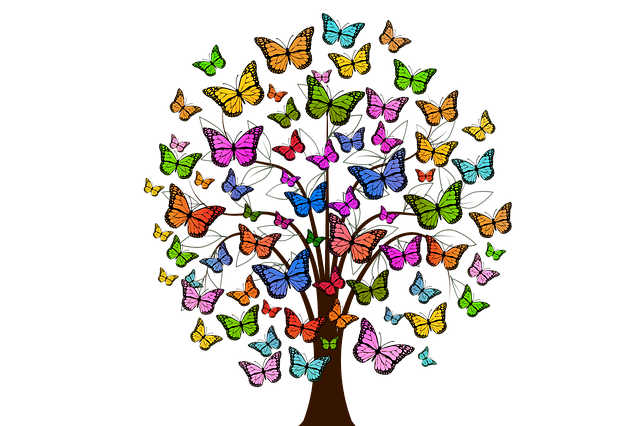Holistic wellness encompasses the maintenance of mental, emotional, and physical health through a variety of therapeutic practices. Mindfulness therapy is central to this approach, teaching individuals to be present and centered, thereby enhancing their ability to manage stress and complex life situations. Cognitive-behavioral therapy (CBT) is also crucial, helping people identify and change negative thought patterns and behaviors that affect well-being. Integrative wellness therapy combines these methods with art therapy for healing, yoga therapy, and meditation for holistic wellness to offer a personalized treatment plan that promotes emotional understanding and overall health. Yoga therapy focuses on physical poses, breathwork, and meditation to improve body flexibility, strength, and balance, with benefits that extend into daily life. Meditation contributes to mental and emotional tranquility, while somatic therapy facilitates the release of stored emotions and traumas by emphasizing the interconnection between body and mind. Together, these therapies provide a comprehensive, nuanced, and effective approach to holistic wellness, addressing the multifaceted nature of health and promoting resilience and enduring well-being. Key terms include therapy for holistic wellness, mindfulness therapy, cognitive-behavioral therapy, integrative wellness therapy, art therapy for healing, yoga therapy, meditation for holistic wellness, and emotional healing therapy.
Balancing the myriad challenges life throws our way can feel like an insurmountable task. Amidst the whirlwind of daily demands, finding equilibrium is not just a pursuit but a necessity for well-being. This article explores how professional guidance through therapy for holistic wellness can be a transformative journey. We delve into the role of mindfulness therapy as a path to inner peace and resilience. Additionally, cognitive-behavioral and integrative wellness therapies are examined as effective tools for personal growth and emotional healing. Furthermore, the therapeutic benefits of art and movement, including yoga, meditation, and somatic practices, offer alternative avenues for those seeking harmony within. Through these diverse approaches, individuals can cultivate a balanced life, fostering mental clarity, emotional health, and overall well-being.
- Embracing Holistic Wellness through Therapy: A Path to Balance
- The Role of Mindfulness Therapy in Navigating Life's Challenges
- Cognitive-Behavioral and Integrative Wellness Therapies as Tools for Transformation
- Healing Through Art and Movement: Yoga, Meditation, and Somatic Practices for Emotional Health
Embracing Holistic Wellness through Therapy: A Path to Balance

Embarking on a journey toward holistic wellness often requires a multifaceted approach that addresses the interconnected nature of mental, emotional, and physical health. Therapy for holistic wellness encompasses various modalities designed to promote balance and harmony within one’s life. Mindfulness therapy, which encourages an awareness of the present moment, can be instrumental in cultivating a more centered and peaceful state of being, allowing individuals to navigate life’s challenges with greater equanimity.
Cognitive-behavioral therapy (CBT) offers effective strategies for identifying and altering negative thought patterns and behaviors that contribute to emotional distress. By restructuring these patterns, CBT enables individuals to achieve more adaptive ways of thinking and behaving, which are essential components of overall wellness. Additionally, integrative wellness therapy combines traditional therapeutic techniques with complementary practices such as art therapy for healing. This approach harnesses the creative process to express and work through emotional experiences, fostering a deeper connection with one’s inner self and promoting emotional healing.
Yoga therapy integrates physical postures, breathwork, and meditation to enhance flexibility, strength, and balance—not only on the mat but also in daily life. It serves as a conduit for stress reduction and aids in developing a mindful approach to living. Meditation for holistic wellness is a transformative practice that can significantly impact one’s emotional and mental health by fostering a state of calmness and clarity, thereby contributing to a more balanced lifestyle. Finally, somatic therapy, which focuses on the connection between the body and the mind, allows individuals to explore and release stored emotions and traumas through bodily awareness and movement. This therapeutic modality can be particularly effective in addressing trauma and promoting healing on all levels of being.
The Role of Mindfulness Therapy in Navigating Life's Challenges

Mindfulness therapy emerged as a pivotal tool in fostering holistic wellness, offering individuals a means to navigate life’s myriad challenges with greater clarity and peace. This form of therapy encourages an acute awareness of the present moment, allowing for a more balanced response to stressors and cultivating emotional resilience. By integrating mindfulness practices with cognitive-behavioral techniques, individuals can reframe negative thought patterns and develop healthier coping mechanisms.
In addition to mindfulness, holistic wellness can be enhanced through various other therapeutic modalities such as art therapy for healing, yoga therapy, and meditation. These practices collectively serve to address not just the mental but also the physical and emotional aspects of an individual’s being. Art therapy, for instance, provides a non-verbal outlet for expressing and processing complex emotions, facilitating a safe space for emotional healing therapy. Yoga therapy complements this by integrating mind-body exercises that promote somatic awareness, further contributing to the body’s natural capacity for healing and restoration. Meditation for holistic wellness, when practiced regularly, can deepen one’s sense of inner calm and focus, creating a foundation upon which individuals can build resilience against life’s challenges. Integrative wellness therapy, which combines these diverse therapeutic approaches, offers a tailored path to recovery and personal growth.
Cognitive-Behavioral and Integrative Wellness Therapies as Tools for Transformation

In the quest for holistic wellness, individuals are increasingly turning to a variety of therapeutic approaches that address both mental and physical health. Cognitive-Behavioral Therapy (CBT) stands out as a form of psychological treatment that helps individuals modify harmful thinking and behavior patterns through a structured program. By identifying dysfunctional beliefs and schemes, CBT enables clients to develop more adaption, realistic, and functional ways of thinking, which can lead to significant emotional healing therapy. This evidence-based practice is tailored to each individual’s needs, offering a pathway towards transformative change that resonates with the core principles of emotional healing therapy.
Complementing CBT, integrative wellness therapy expands the scope of healing by incorporating a range of holistic practices, including mindfulness therapy, art therapy for healing, yoga therapy, and meditation for holistic wellness. These modalities are instrumental in fostering a deeper connection with one’s inner self. Mindfulness therapy teaches individuals to live in the present moment, fostering greater awareness and reduced stress. Art therapy for healing uses creative expression as a medium to process emotions, while yoga therapy promotes physical health and mental clarity through guided movements and breathwork. Meditation for holistic wellness, on the other hand, helps in achieving a state of calm and balance, which is essential for overall well-being. Additionally, somatic therapy, which involves understanding and addressing body sensations as they relate to emotional experiences, further complements these therapeutic practices, offering a comprehensive approach to transformation that encompasses the mind, body, and spirit.
Healing Through Art and Movement: Yoga, Meditation, and Somatic Practices for Emotional Health

Holistic wellness encompasses a multifaceted approach to health that includes physical, mental, and emotional well-being. Therapy for holistic wellness often incorporates various practices such as art therapy for healing, which allows individuals to express and process emotions through creative outlets. This form of therapy can be particularly effective for those who have difficulty verbalizing their feelings or experiences. Yoga therapy complements this by offering a physical practice that encourages mindfulness and emotional regulation. The synchronized movement and breath work in yoga cultivate an awareness of the body and a sense of presence, which can be therapeutic in itself. When combined with meditation for holistic wellness, these practices create a powerful tool for cognitive-behavioral therapy, enabling individuals to observe their thoughts and emotions without judgment and to redirect negative patterns towards more positive and healthy behaviors.
Integrative wellness therapy further expands on this by integrating various evidence-based therapies to address both the symptoms and underlying issues of emotional distress. This personalized approach allows for a tailored healing journey that may include somatic practices, which focus on the mind-body connection. Through somatic therapy, individuals can explore their physical sensations as a pathway to understanding and releasing pent-up emotions. Mindfulness therapy is also a cornerstone in this holistic framework, teaching individuals to be fully present and to cultivate a non-reacting state of awareness that can diffuse stress and promote emotional healing therapy. Together, these modalities offer a comprehensive toolkit for navigating life’s challenges, fostering resilience and promoting overall wellness.
Balancing the myriad challenges life presents can be a formidable task, yet with the right guidance and therapeutic approaches, a harmonious equilibrium is attainable. This article has explored various avenues through which individuals can embark on their journey towards holistic wellness. Embracing therapy for holistic wellness, such as mindfulness therapy, cognitive-behavioral therapy, integrative wellness therapy, and engaging in art therapy for healing, one can cultivate resilience and adaptability. Practices like yoga therapy, meditation for holistic wellness, and somatic therapy offer additional pathways to emotional healing. These modalities not only aid in managing life’s complexities but also empower individuals with the tools necessary for enduring transformation and sustained equilibrium. As we conclude, it is clear that professional guidance, tailored to each person’s unique needs, is a vital component in navigating and overcoming the obstacles of daily life.
